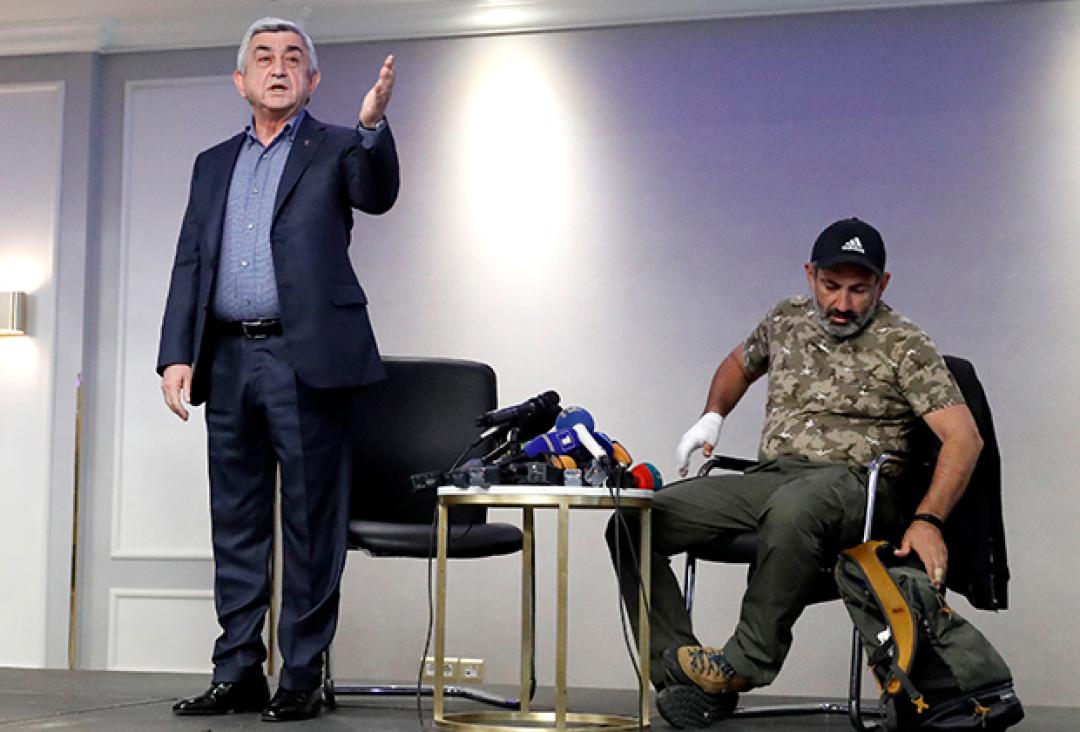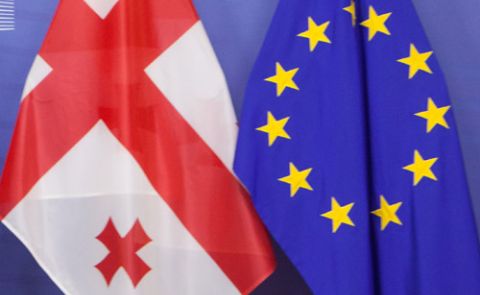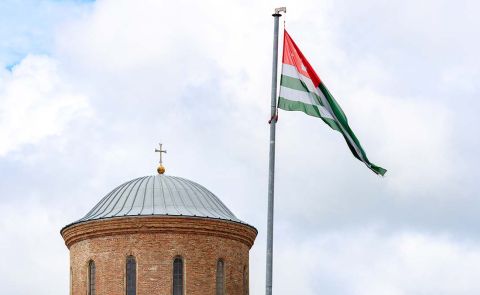
Serzh Sargsyan on Pashinyan and the history of Nagorno-Karabakh negotiations

On 15 February, Armenia’s former President and leader of the Republican Party (HHK) Serzh Sargsyan held an extensive interview with the Armenews TV channel where he spoke on the history of negotiations concerning Nagorno-Karabakh, reported tert.am.
Sargsyan was first asked if the events of the Velvet Revolution and his resignation have anything to do with the Karabakh issue? “First of all, I must say that in my opinion, there is a direct connection. In other words, what happened in the spring of 2018 was in essence an anti-Karabakh movement, I must honestly say, not only against Karabakh, but also against the people of Karabakh. A situation arose in which I preferred to resign rather than try to offer the public one of the many solutions available at that time. I can never agree with the idea that you voiced, namely that I handed over power to Pashinyan,” he stated.
The country’s former president then said that he met Pashinyan (who he dubbed “the capitulator”) only three times in his life. “The future capitulator appeared in my sight in the early 90s, more specifically, at the end of 1993. I was then minister of defence for several months and after many successes, we had some problems at the front (during the first Karabakh war) and he was manipulating these problems, citing facts that were not really relevant, unreasonably criticizing simply hurt us - not only me, but also my comrades in arms,” Sargsyan said. The second time, their meeting took place in the late 90s in court, and for the third time - at the Marriott Hotel in 2018. “I would never meet him face to face alone. I didn’t have such a desire,” he stressed.
Speaking about the speculations circulating in the Armenian society that Pashinyan was his “project,” Sargsyan called it funny. “I would not wish such a project even to the enemy. Pashinyan is the 'project' of those forces with whom I would never have anything to do with. With them I had only contradictions - in the sense that my ideas about the development of Armenia and Karabakh differed significantly from the ideas of those forces. The capitulator was chosen by our people, our deceived people with the direction of these forces. And all those who disseminate this thesis, let them not try to put the blame on me,” Sargsyan stressed.
When confronted with the fact that Pashinyan repeatedly stated that he allegedly inherited a negotiation package from him, Sargsyan dismissed such notions. “No, definitely not. What he said speaks only about the fact that he, even after working for almost 3 years as Prime Minister, that is, being the chief negotiator, did not understand the meaning of the negotiations, in general. He made such statements after the capitulation, and the representative of one of the co-chairing countries, Mr. Igor Popov immediately hit back at his allegations (Caucasus Watch reported)... We (HHK) have never negotiated about what we will give, we have always negotiated about what we will get. But the negotiations were a matter of giving or not giving for these people, which is nonsense, nonsense, maybe to some extent typical for such people. Our red line was that Nagorno-Karabakh would never be part of Azerbaijan. That was our red line, and we defended that line until 23 April 2018,” Sargsyan stated.
Sargsyan also accused Armenia’s current leadership of greatly mishandling the Karabakh peace process and making the Second Karabakh war with Azerbaijan inevitable. He said it refused further talks on the so-called Madrid Principles of the conflict’s resolution which were first put forward by the US, Russian and French co-chairs of the OSCE Minsk Group in 2007. “I was not just ready to sign it. I agreed to remain [in power as] Armenia’s prime minister in order to implement that variant. And I was not going to sign it secretly … I’m not saying that we would have put it on a referendum. But we would have made it the subject of a big and heated public debate. I was not sure that the majority of the public would support it,” he stated.
When asked if the Second Karabakh war was a continuation of the April war from 2016 and about a circulating idea that he verbally agreed to cede 7 regions at the cost of stopping the April war, Sargsyan responded furiously to the question. “No never. Such an opinion has nothing to do with reality, and David, sorry, where did you get that information? In reality, such a thing did not happen. The April war was stopped with the mediation of Russia, which Azerbaijan accepted because it was inflicted upon a powerful counterattack during the hostilities, and, having suffered great losses, had to sit at the negotiating table. I said this in detail during my August press conference,” he stated.
Sargsyan also said that he didn’t agree that the Armenian party artificially delayed the status-quo after the negotiations in Kazan. “I cannot agree… with the theory of procrastination… I do not agree with your idea that the Kazan document presupposed territorial concessions. The Kazan document presupposed the status of Nagorno-Karabakh outside Azerbaijan. I say again, throw [out the idea about] what we were going to give, you think about what we were going to have. We would have an internationally guaranteed promise that the final status of Nagorno-Karabakh should be determined by the free will of the people of Nagorno-Karabakh, which would have a binding legal force, the agenda of which is not limited by anything. It allowed us to go very calmly through the solution of the problem, yes, through compromises. In addition, we could have an interim status for Nagorno-Karabakh, which, like the President of Azerbaijan, the co-chairs described as “today’s reality plus.” With this intermediate status, Nagorno-Karabakh received 7 security guarantees, the first point of which was the following: the security of Nagorno-Karabakh is ensured by the NKR self-defence forces, Armenia was to be officially recognised as the guarantor of NK’s security, the results of elections and the judicial system in Nagorno-Karabakh should be recognised by the international community, the involvement of peacekeepers, etc.” he detailed.
According to Sargsyan, the negotiations were about the return of 5 districts. “There was no talk of a land border or a corridor. We would not have given the Lachin region or Kelbajar. That is, in terms of Kelbajar, there was some interconnectedness. I do not want to go into details, because it is first of all for specialists, not for the general public. Four committees were to be set up: one of those committees should deal with the referendum, the other – with the evacuation of our population, the Armenian population, the Azeris from Kelbajar, but it was never handed over [to] Azerbaijan, they were interconnected. The further the idea of the referendum went, the closer the day got, the more this problem might be solved in parallel,” he added.
The country’s former president also spoke about the meeting with the OSCE co-chairs in August 2014. “During the meeting with the head of one of the co-chair countries in 2014, he asked me directly, he said: ‘Serzh, can you honestly tell me your goal in the Karabakh issue? Do you want the problem to be solved or do you want to maintain the status quo?’ I honestly said that I wanted to solve the problem. I did not want to leave this problem on the shoulders of the next generations. The next question came back, ‘and in your opinion, how can this problem be solved?’ I also said the following directly: in my opinion, the problem could have two solutions: a final solution and a half-solution,” he said.
“I see the final solution as follows: Azerbaijan recognises that Nagorno-Karabakh is independent, recognises the fact of NK independence. In that case, I return to Yerevan and tell my teammates that we need to return those 7 regions held as a security belt, we keep a sufficient corridor to communicate safely with Nagorno-Karabakh instead of today’s 2.5km-long one. Then I go to Nagorno-Karabakh, I convince my comrades-in-arms, the NKR leadership that this is the right solution. And when I get agreement in both places, we start to make this idea public. But I did not guarantee that I could implement this idea,” he added.
According to Sargsyan the half-solution was that Azerbaijan recognises that the final status of Nagorno-Karabakh should be determined by the people of Nagorno-Karabakh without any time limits. “Azerbaijan ought to accept it, the international community should confirm it. In that case, I return to Armenia, I assure my teammates that in case of such a half-solution, we are obliged to return 5 regions to Azerbaijan, get an interim status for Nagorno-Karabakh,” Sargsyan added.
Finally, Sargsyan emphasised that a recognition of Karabakh’s independence would mean putting an end to the negotiation process. Speaking about the April war, Sargsyan recalled that he then told the ambassadors accredited in Armenia that if the war dragged on, then Armenia would recognise the independence of Nagorno-Karabakh. “Thank God, the war did not last long, as a result of the war we had Vienna and St. Petersburg agreements, so I thought it was too early to recognise the independence of Nagorno-Karabakh,” he said.
At the same time, the ex-president stressed that it was not clear to him why these authorities did not recognise it during the 44 days of war. “If the co-chairs of the OSCE Minsk Group, if the international community believed that the recognition of the independence of Nagorno-Karabakh by Armenia would mean forcing the negotiation process into a dead end and, as a result, military actions, if military actions were already underway - what prevented the recognition of independence?” Sargsyan. In response to the question whether it is already too late to recognise the independence of Karabakh, the ex-president said: "sooner or later we will come to this."
Various reactions to Sargsyan’s interview were made public. The secretary of Armenia’s National Security Council (NSC) Armen Grigoryan said that Armenia is now facing a stalemate due to the promises which Sargsyan gave to the Azerbaijani authorities back in 2016 to end the fighting in Nagorno-Karabakh. “The April war ended because of the Armenian side. And those promises implied a specific timeframe – which coincided with the summer period that saw [the rebellion by the radical opposition group] Sasna Tsrer. Sargsyan used the time period to postpone [the peace deal] until April 2017, and then the process was protracted until the [2018] government transition. By giving such promises and creating such a burden, that person quit his post then to later announce that he is ready to sign [certain documents] and take certain steps … But my opinion is that we are facing serious problems today because of his promises,” Grigoryan stated.
The leader of the opposition Bright Armenia party Edmon Marukyan was also critical towards Sargsyan’s statements. “The idea that the transfer of 5+2 regions to Azerbaijan was assumed, with all the possible solutions, during the whole process of negotiations ran like a red thread in the statements that the third President of Armenia Serzh Sargsyan made yesterday. If this was the case, why were millions of dollars spent on Kovsakan (Zangelan), the nearby villages and Sanasar (Qubadli)? Why was a new city being built on Araks River? Why were tremendous amounts of money being spent on Mekhakavan (Jabrayil)?” he asked. “It turns out that the taxes of citizens of Armenia and the funds sent by Armenians of the diaspora were being spent in a territory that was going to be transferred to Azerbaijan. Basically, we were so rich that we could build cities and villages for Azerbaijan,” he emphasised.
See Also


BP Strengthens Presence in Azerbaijan’s Offshore Energy Sector

Netanyahu’s Letter to Aliyev: Mutual Trust, Solidarity Following Hamas Attacks, Facilitating Dialogue Between Israel and Türkiye

Azerbaijan Expands JF-17 Thunder Fighter Jet Order from 16 to 40 Units

EU Commissioner and NATO PA Warn Georgia Over Democratic Decline Amid Accession Challenges

